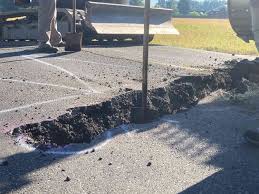 June 2023
June 2023
Canada has committed to greenhouse gas emissions targets 30 percent lower than 2005 levels by 2030 with more dramatic reductions by 2050. These commitments are likely to be followed with requirements for high-rise buildings to make costly infrastructure upgrades.
Buildings are a top source of greenhouse gas emissions in Canada. Without changes that impact high-rise residential buildings, which accounted for 12 percent of emissions in 2019, it is unlikely that stated targets can be met.
Canada’s goal is to achieve net-zero emissions, meaning that no greenhouse gas is emitted. For a high-rise building to achieve net-zero emissions they need to update boilers, water heating systems, emergency generators and all gas burning appliances.
It is virtually certain that the price of gas will rise, to discourage use, and that all the above-mentioned equipment will have to be upgraded so each building achieves net-zero emissions. All buildings are likely to require alternate heating systems. Today’s reserve funds are insufficient and unrealistically focused on replacement of equipment with something similar. Projected replacement costs are underfunded.
It’s too soon to predict what equipment will be required to replace our greenhouse emitting gas appliances and equipment. Yet it is a virtual certainty these replacements will be more expensive. Now is the time to start accruing funds if our reserve funds are to remain adequate for this purpose.
Today’s reserve fund studies, and reserve funds, which are based on projections 30 or 45 years into the future, should already be reflecting these future costs.
Remaining in a strong financial position is only possible through realistic planning for future expenditures. We know climate change is real and of Canada’s commitment to reduce greenhouse emissions. This is sufficient insight to recognize that replacement equipment and systems will be more expensive than what is provided for in today’s reserve funds and reserve fund studies.
Choices are clear. Responsible condo boards can begin accruing money now. This begins by requiring reserve fund studies to reflect these known costs and to adjust condo fees accordingly. This avoids dramatic fee increases, special assessments and loans as we near 2030. Funds will then be available once new emission requirements are clear. Alternatively, they can do nothing and deal with the effects of financial shortfalls that can be avoided.
 Don’t delay until time runs out.
Don’t delay until time runs out.







